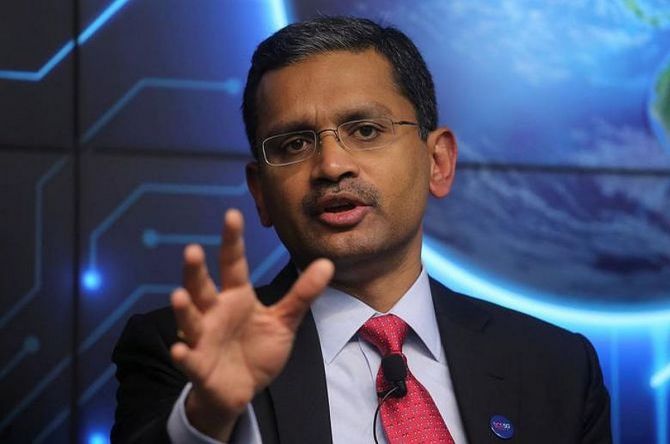TCS is looking for ‘talent on the cloud’
Talent Cloud will be powered by Algo Talent Development, enabling associates to move across different technologies and industry domains.

Tata Consultancy Services (TCS), India’s largest information technology (IT) services firm, is looking for ‘talent on cloud’ — literally.
A vital part of its efforts to reimagine its human resources strategy is the focus on fungibility of talent.
The company is also looking at creating the algorithm-based talent marketplace and an internal gig workers’ community.
That’s a massive exercise for a firm with close to 470,000 employees.
Milind Lakkad, chief human resources officer (CHRO), who is in the midst of a roll-out of talent transformation for FY22, says at the heart of the strategy is the availability of right talent, at the right time, and at the right place.
“TCS is looking at structured ways to enable anyone with the right skills to deliver specific work from anywhere in the world at their convenience and still deliver its client commitments with certainty,” he says.
Talent Cloud will be powered by Algo Talent Development, enabling associates to move across different technologies and industry domains.
“What is making this possible is a comprehensive competency data foundation across the organisation,” Lakkad adds.
The Algo Talent Marketplace, which is in an early stage of action, is an automated, scaled, intelligent engine, matching and confirming associate capabilities and preferences with job needs.
“We are currently running pilots to test some of the new work models like the Gig workplace — crowdsourced timeboxed ‘stints’ for smaller tasks within TCS and Flexi work,” he adds, as part-time workforce, families becoming part of the ‘extended workforce’, and ‘flexible employer-employee relationships’ are going to be key to future of work models.
Lakkad believes that TCS can easily create an internal gig worker base as part of its Agile 2020 strategy.
“Being agile means doing things independently. Can we identify people who are certified from a skills perspective and are suitable to take on gig projects,” he says.
The idea has been implemented in a couple of projects already.
Talent cloud also means identifying specialists who can work on multiple assignments.
“We are looking to create guilds or what we call Ivy Leaders within the company.
“Since location is no more a hurdle, if you are an expert, then we want to see how many projects you are adding value to.
“These Ivy leaders will go through a programme called ‘contextual masters’ which makes them as good as any person who is out of the premier institutes.
“The idea of guilds around the world is how people of common academic background come together and share ideas and have pride in their guild.
“We are trying to build that culture,” says Lakkad.
At present, 15,000 associates have availed of contextual masters, and the company aims to take this number up to 50,000.
The reimagined HR model also has impact on onshore hiring and visa.
Lakkad agrees that the pandemic has made it possible to do several aspects of work from anywhere.
Visa dependency is thus coming down, though that does not mean TCS is not hiring onshore; last year it hired 3,000 in the US alone.
Lakkad also believes deployment of skills has become borderless with remote workplace gaining currency.
So “value has to be geography agnostic and premium billing is a reality”, he says.
The firm has thus put a premium on skill.
For example, at the fresher level, TCS pays Rs 3.35-4 lakh, but if a candidate finishes his TCS Xplore programme in time, she can avail of competence readiness incentive under which the package can go up to Rs 7 lakh.
TCS is going a step ahead and creating a roadmap of career development for its employees under the Elevate programme.
The initiative is aimed at linking learning with career and rewards.
At present, 210,000 associates have availed of the Elevate programme.
“The idea is to enable employees to create a brand for themselves.
“This covers the entire career of an individual — from entry level to three years, we try and make them professionals; over four to nine years of services we try to make them specialists and over the next 10-20 years, we make them transformational leaders,” Lakkad says.
Source: Read Full Article

